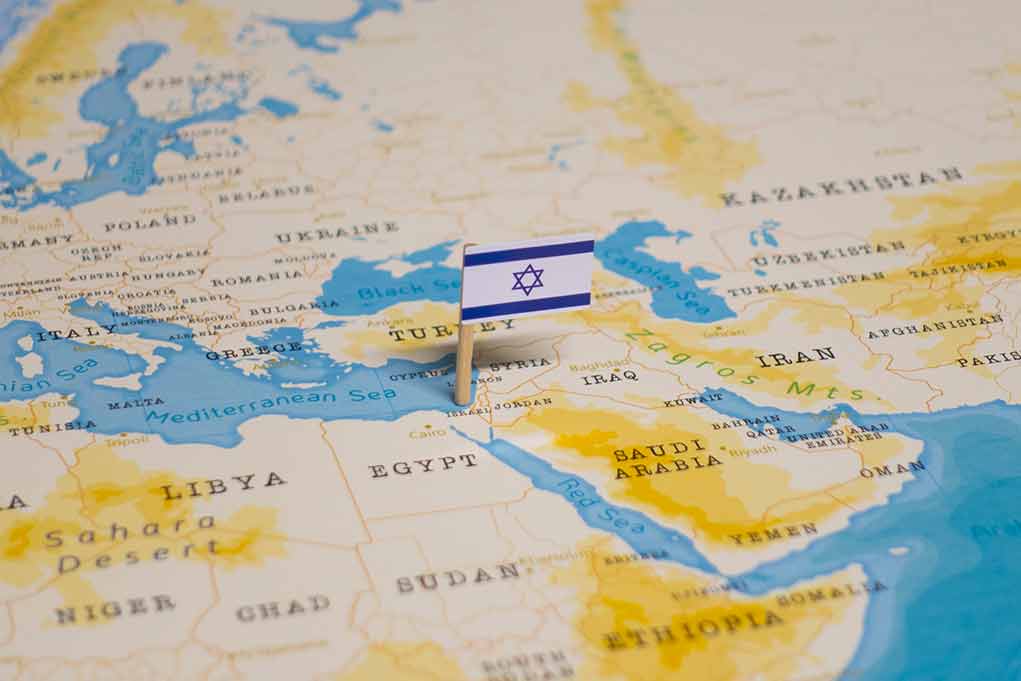
A ballistic missile from Yemen struck near Israel’s Ben Gurion Airport, injuring eight people and prompting Netanyahu to vow swift retaliation against the Iran-backed Houthi rebels responsible for the attack.
Key Takeaways
- Israeli Prime Minister Benjamin Netanyahu has promised retaliation after a Houthi missile from Yemen landed near Ben Gurion Airport’s main terminal, injuring eight people.
- Israel’s defense systems failed to intercept the missile, prompting an investigation into the lapse in the country’s typically effective air defenses.
- The attack forced a temporary suspension of flights, with several international airlines canceling service to Tel Aviv.
- Houthi military spokesperson declared the Israeli airport “no longer safe for air travel,” signaling potential further attacks.
- Israeli officials, including Defense Minister Israel Katz, have indicated a severe response is forthcoming, potentially escalating regional tensions.
Missile Strike Exposes Defense System Failure
A ballistic missile launched by Yemen’s Houthi rebels struck near Ben Gurion Airport’s main terminal, creating a crater and sending shockwaves across Israel’s security establishment. The impact injured eight people – four from the blast itself and four others while seeking shelter. The missile strike represents a rare successful attack against Israel, whose Iron Dome and other air defense systems typically intercept incoming threats. Israeli military officials have launched an investigation into why the defense systems failed to neutralize the missile before impact.
Sirens activated across central Israel as the missile approached, prompting civilians to seek shelter. The attack temporarily halted all flights and led to the closure of airport entrances and train services. Multiple international airlines have already canceled flights to and from Tel Aviv following the incident, creating travel disruptions for thousands of passengers and raising concerns about the safety of Israel’s primary international gateway.
⚡️🚨 Clean shot of the moment of impact of the Yemeni missile on Ben Gurion Airport pic.twitter.com/Jeq9P3A4rk
— Middle East Observer (@ME_Observer_) May 4, 2025
Netanyahu Promises Strong Retaliation
Israeli leadership has taken a firm stance following the attack. Prime Minister Benjamin Netanyahu convened an emergency meeting with defense officials to formulate a response, declaring, “We attacked in the past, we will attack in the future.” This clear warning signals potential military action against Houthi positions in Yemen, which could further intensify regional conflicts. Netanyahu’s administration faces growing pressure from Israeli citizens demanding stronger protection and decisive action against threats from multiple fronts.
Israel’s Defense Minister Israel Katz reinforced the government’s position, stating, “Anyone who hits us, we will hit them seven times stronger.” Meanwhile, opposition figure Yair Golan criticized the government’s handling of the situation, suggesting the attack represents a broader failure in Israel’s current security approach. The domestic political implications add another layer of complexity to the government’s decision-making process regarding its response.
Houthis Expand Their Role in Regional Conflict
The Houthi rebels, who control much of Yemen, have increasingly inserted themselves into the broader Middle East conflict. Their spokesperson, Yahya Saree, declared Ben Gurion Airport “no longer safe for air travel” following the attack, suggesting further strikes may be planned. The Iran-backed group has framed their actions as support for Hamas and opposition to Israel’s military operations in Gaza, demonstrating the interconnected nature of multiple regional conflicts.
This latest missile attack comes despite ongoing U.S.-led military operations against Houthi positions in Yemen. American warplanes have conducted multiple raids targeting Houthi capabilities, particularly those used to attack international shipping in the Red Sea. The Houthis’ ability to launch a successful strike against a target as distant as Tel Aviv, despite these counteroperations, raises significant questions about the effectiveness of current containment strategies and the group’s military sophistication.
Iran’s Shadow Over Regional Escalation
Israeli War Cabinet member Benny Gantz attributed the attack to Iran, which provides support to the Houthi rebels. This accusation connects the missile strike to the broader tensions between Israel and Iran, potentially laying groundwork for a wider regional response. The identification of Iran as the ultimate source of the threat suggests Israel may consider actions beyond Yemen in its response strategy, potentially targeting Iranian interests or proxies elsewhere in the region.
The missile attack represents a concerning escalation in the capability and ambition of Iran-backed forces to target critical Israeli infrastructure. With flights disrupted, citizens injured, and military forces preparing a response, the incident has significantly heightened tensions in a region already beset by multiple overlapping conflicts. How Israel responds, and whether it chooses to target Yemen directly or focus on other Iranian proxies, will likely shape the next phase of these ongoing hostilities.




